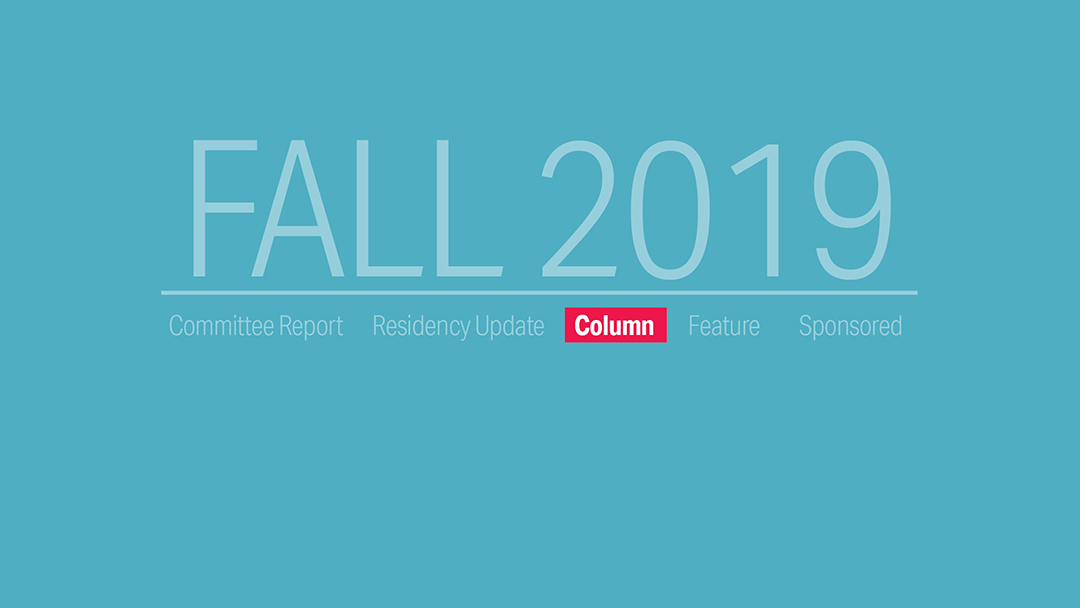Fall 2019: Understanding Medicare for All
Healthcare reform continues to be an important issue concerning most Americans. A multitude of social problems arise when millions of Americans cannot afford medical insurance: poor health outcomes, inappropriate use of the emergency room, poor preventive care habits and bankrupting medical bills are just a few of the adverse circumstances we have been contending with for decades. With so many people unable to afford medical care, conventional or otherwise, we have come to a crisis of conscience in this country, which revolves around the concept of whether healthcare is a human right or a privilege to be purchased in a capitalistic society.
The loudest buzz in the early throes of the 2020 Presidential campaign season is swirling around two major conceptual models in administering healthcare: government-based, single payor models vs. traditional, insurance-based coverage. The latter is purchased in the free market by employers with variable amounts of employee contributions or by individuals who are not covered by employer healthcare benefits. There is Medicaid coverage for the poor who can successfully demonstrate their poverty, and social security disability (usually a Medicare product) for the disabled among us.
This Republican view on healthcare is generally a patient-centered one in which patients should be able to choose their own levels of coverage for individuals and their families in the free marketplace. Insurance companies are the vendors who provide coverage for healthcare by charging premium payments to employers, employees and individual payees. Medicaid and disabled persons do not have to contribute to their healthcare coverage. The problem with these models is that insurance companies can provide volume discounts to large employers who pay large chunks of premium payments. Smaller employers and individual insurance subscribers are not so lucky as the marketplace will dictate higher out-of-pocket premiums in many cases.
Remember, the basic premise of insurance companies is to make money based on favorable risk-benefit analyses. In my view, “being in good hands with Allstate” may be a humanistic fallacy because as long as the risks are favorable, insurance companies do not care whether they are covering your health, your life or your vintage vinyl record collection! Their business is to attract premium payments that beat the odds of payouts so that stockholders (and the C-suite) can make a lot of money.
The Affordable Care Act (ACA) was an attempt by a Democratic President and his advisors to provide more affordable healthcare for many more Americans. There was a mandate which required all U.S. citizens not on Medicaid or SSI (Social Security Disability) to purchase insurance. Insurance companies would still provide the medical coverage, but there would be large government subsidies to help those who could not afford to pay for the required coverage. There were several other insurance company-unfriendly provisions, such as child coverage until the age of 26 and mandatory coverage for pre-existing conditions.
Republicans tried very hard to repeal and replace the ACA, but failed. Instead, they prevented improvement of the bill’s provisions and partially emasculated it by striking down the individual mandate to acquire the coverage. Unfortunately, a credible Republican alternative to ObamaCare has not been presented for deliberation, which brings us back to the Democratic side of the aisle, where the concept of “Medicare for All” is becoming popular among candidates.
Medicare for All is another word for single payor, government-funded healthcare. This of course scares a lot of people due to the government’s dismal history in running social programs successfully. However, it does appear to me that we are on a train that is headed down the tracks to providing healthcare coverage for all Americans as more concepts are popping up. I am personally intrigued by some of the moderate concepts of Medicare for “More,” meaning people as young as 50 may be eligible for Medicare. Another more moderate approach is the idea of Medicare for “Some,” where the others may opt to keep private medical insurance (assuming insurance companies are still willing to provide this as they do in European countries).
Some of the fears about Medicare for All involve the proposition that taxes in general will likely have to increase. I am certainly not going to get into that complex issue here. Insurance companies have tried valiantly to reduce the costs of medical care, and sometime we physicians feel it comes at the cost of depriving our patients of much needed medical procedures and overpriced pharmaceuticals. There is also the real fear that healthcare worker salaries will decrease, especially those of doctors, if the government controls the medical cash flow. Unless the Republicans come up with a much-awaited, palatable plan for healthcare reform in this country, we may very well be faced with Medicare for All, Medicare for More or Medicare for Some. ■


 This article originally appeared in EMpulse Fall 2019. View the
This article originally appeared in EMpulse Fall 2019. View the 


